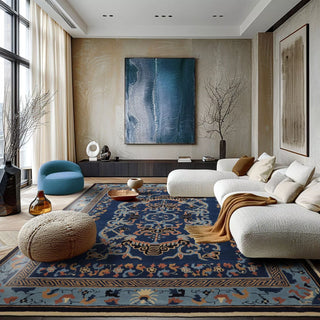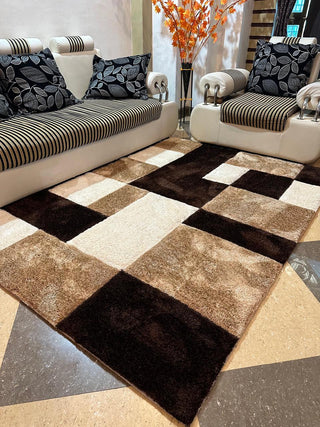Investing in a high-quality carpet can transform your home, providing comfort, durability, and aesthetic appeal. However, distinguishing a premium carpet from a low-quality one requires attention to detail. Here’s how you can identify a high-quality carpet before making a purchase.
Material Matters
The type of material used in a carpet significantly impacts its durability, softness, and maintenance needs.
Wool is a premium natural fiber that’s soft, durable, and resistant to stains. Ideal for luxurious spaces. Nylon is known for its strength and resilience, making it perfect for high-traffic areas. Polyester offers vibrant colors and a soft feel but may wear faster in busy spaces. Silk and viscose add shine and softness but are better suited for low-traffic areas.
Tip: For longevity and comfort, wool carpets are often the gold standard.
Density and Pile Height
Density refers to how closely carpet fibers are packed together. Higher density carpets are more durable and resistant to wear.
To check density, press your fingers into the carpet — if you can easily feel the backing, it may be low-density. A shorter pile often indicates a more durable carpet, while taller piles feel softer but may flatten faster.
Tip: For high-traffic areas, choose a carpet with tightly packed fibers and a medium pile height.
Carpet Backing Quality
A strong, well-constructed backing ensures your carpet maintains its shape and stability. The primary backing holds the carpet fibers in place, while the secondary backing provides additional strength and stability.
Tip: Gently fold the carpet — if the backing is stiff and firm, it’s a sign of good quality.
Stitching and Edge Binding
Inspect the edges and seams for tight, even stitching. High-quality carpets have neatly finished edges that prevent unraveling.
Tip: Frayed or uneven stitching is a red flag for poor craftsmanship.
Weight and Thickness
Heavier carpets typically indicate denser fibers and better durability. Check the carpet’s weight by lifting a sample — high-quality carpets often feel substantial.
Tip: Carpets are measured in ounces per square yard. Aim for a carpet with a face weight of 40 oz or higher for optimal durability.
Color and Dye Quality
Premium carpets use high-quality dyes that resist fading. To test this, rub a damp cloth over the carpet. If color transfers, the dye quality may be poor. Expose a carpet sample to sunlight for a few hours to see if the color fades easily.
Read More: https://carpetplanet.in/blogs/news/carpet-color-trends-for-2023
Warranty and Brand Reputation
Reputable carpet brands often provide comprehensive warranties that cover wear, stains, and texture retention. A strong warranty reflects the manufacturer’s confidence in their product.
Tip: Research brands with a proven track record for durability and performance.
Certifications and Eco-Friendliness
Look for certifications like Green Label Plus, which ensures low VOC emissions for improved indoor air quality. Woolmark is a symbol of genuine wool quality.
Tip: Eco-friendly carpets made from natural fibers or recycled materials are both sustainable and durable.
Final Tip:
When shopping for a carpet, always request samples to compare texture, density, and color in your home’s lighting.
By following these steps, you’ll be equipped to buy carpet online that enhances your space and stands the test of time.
Would you like to add tips for different carpet types like shaggy, wool, or hand-tufted carpets?



